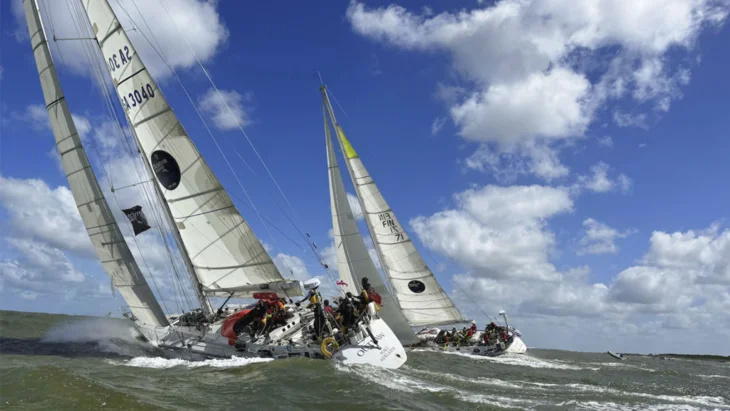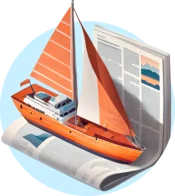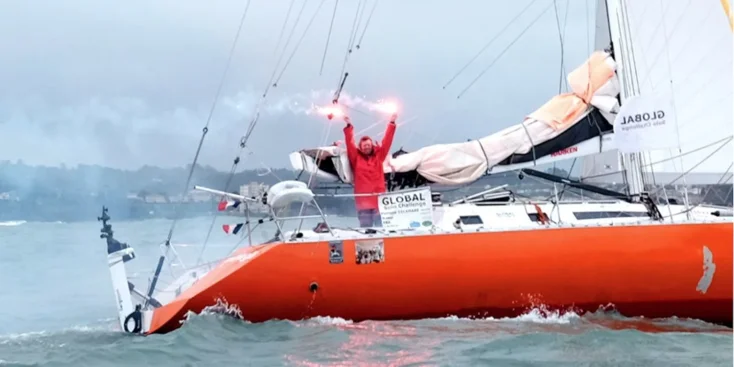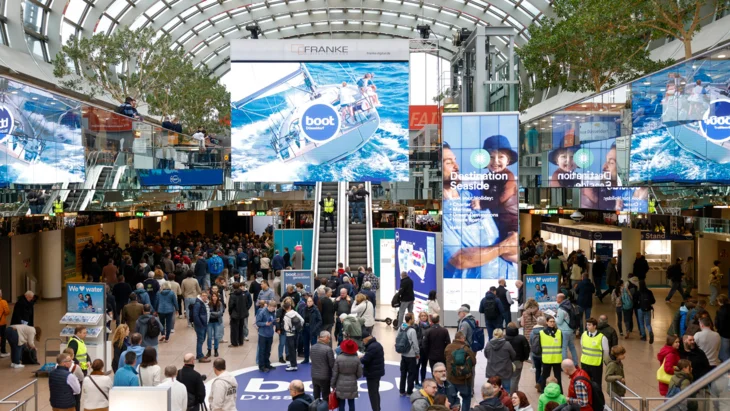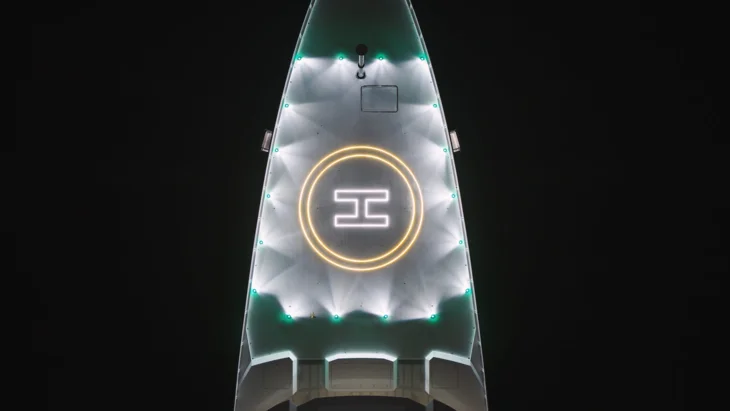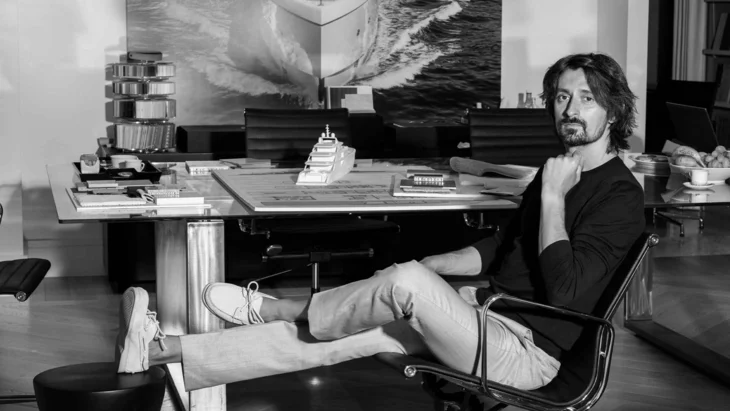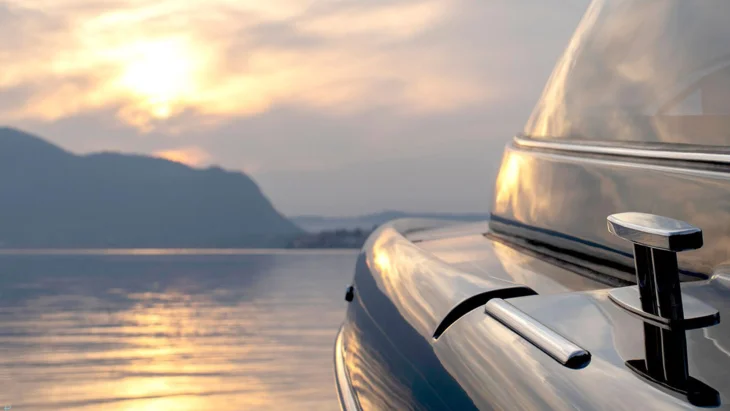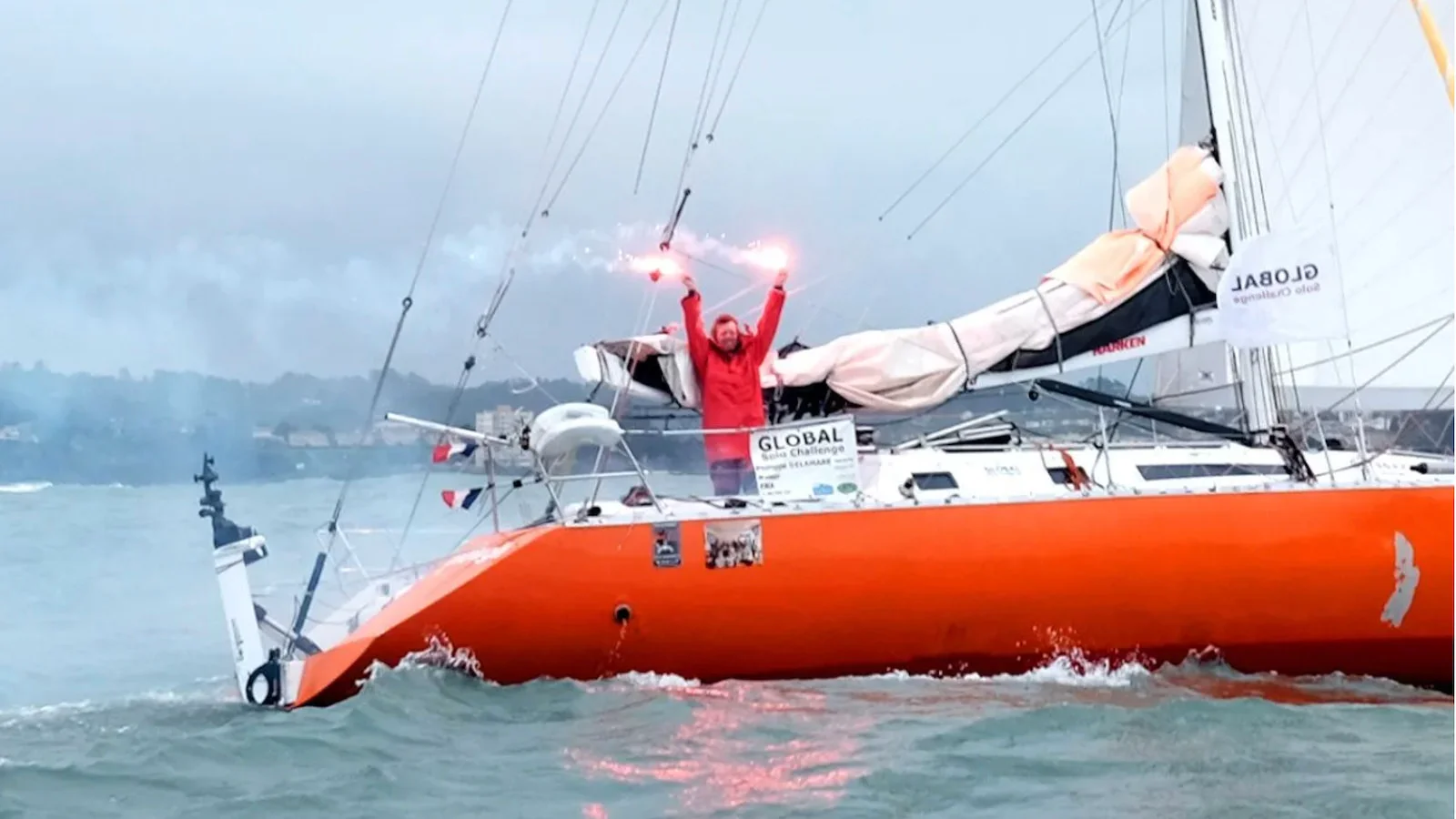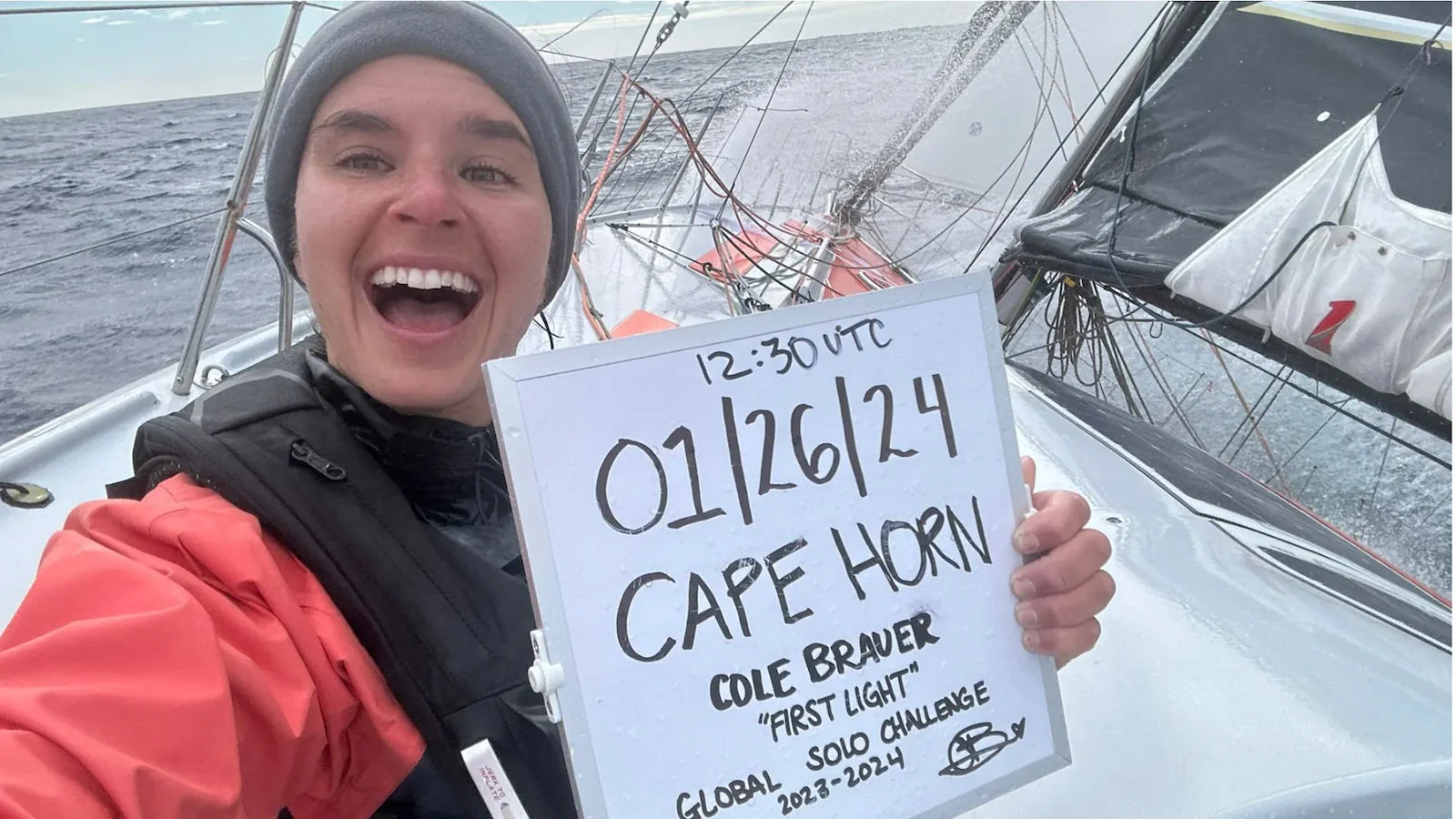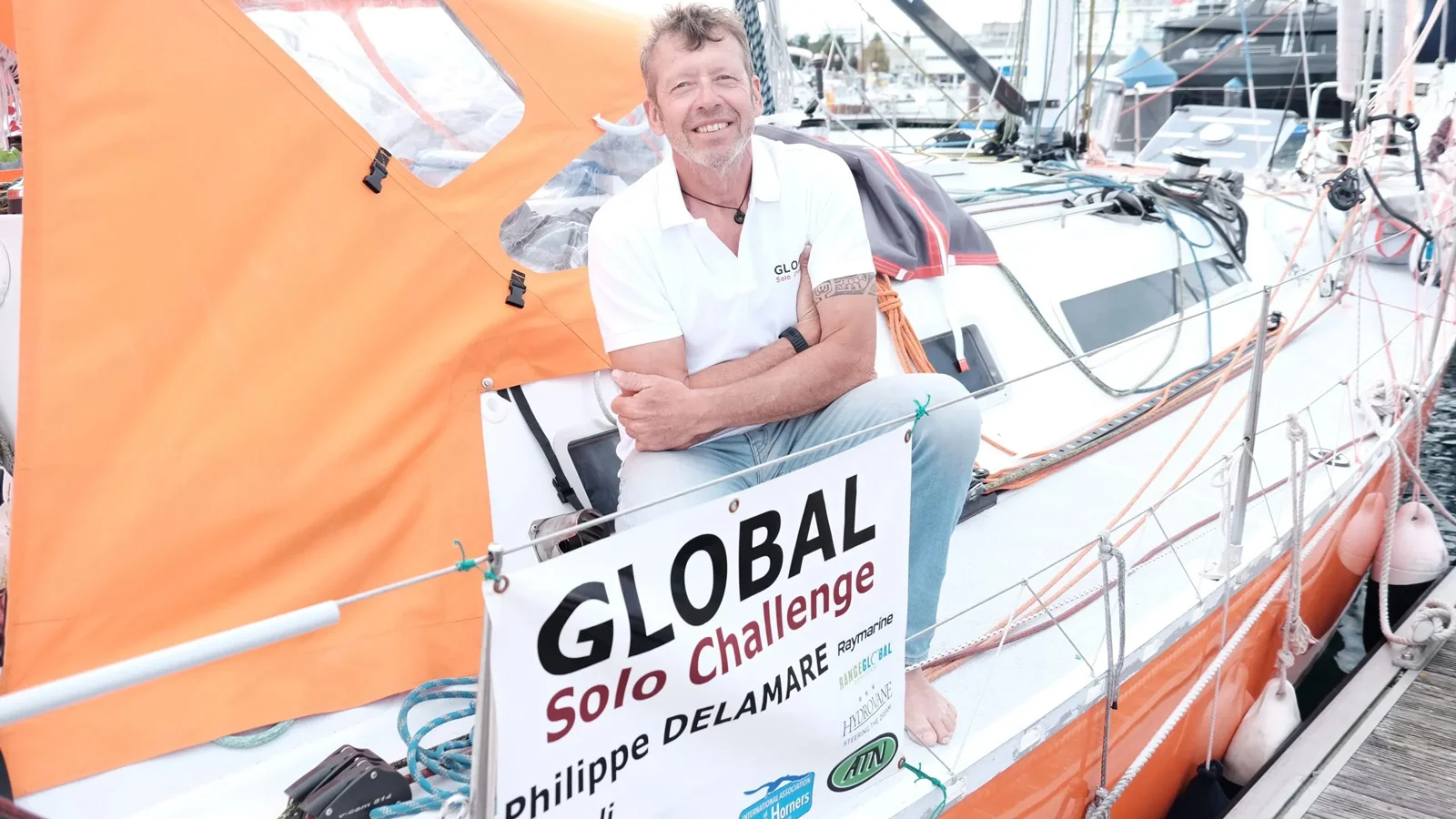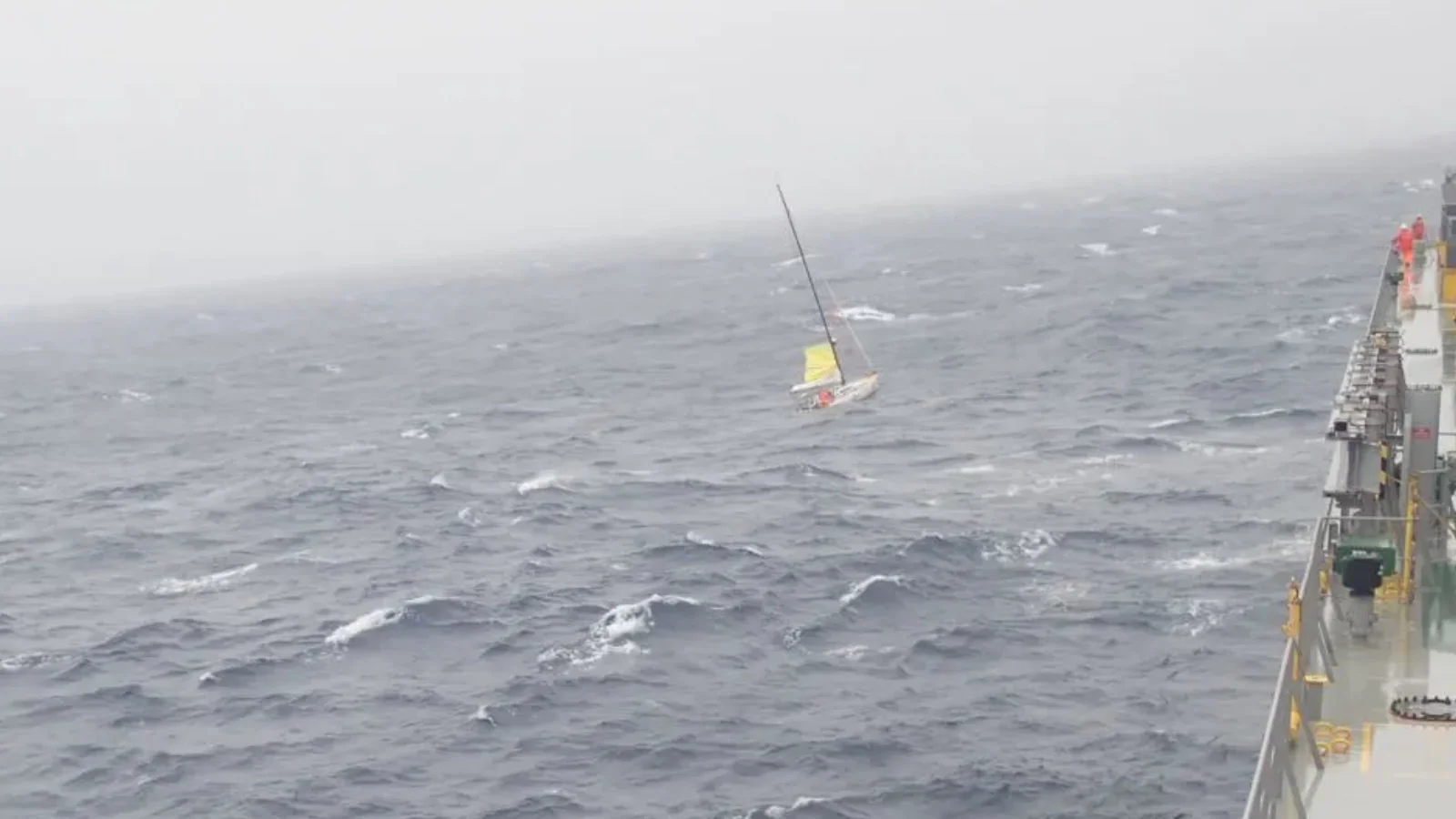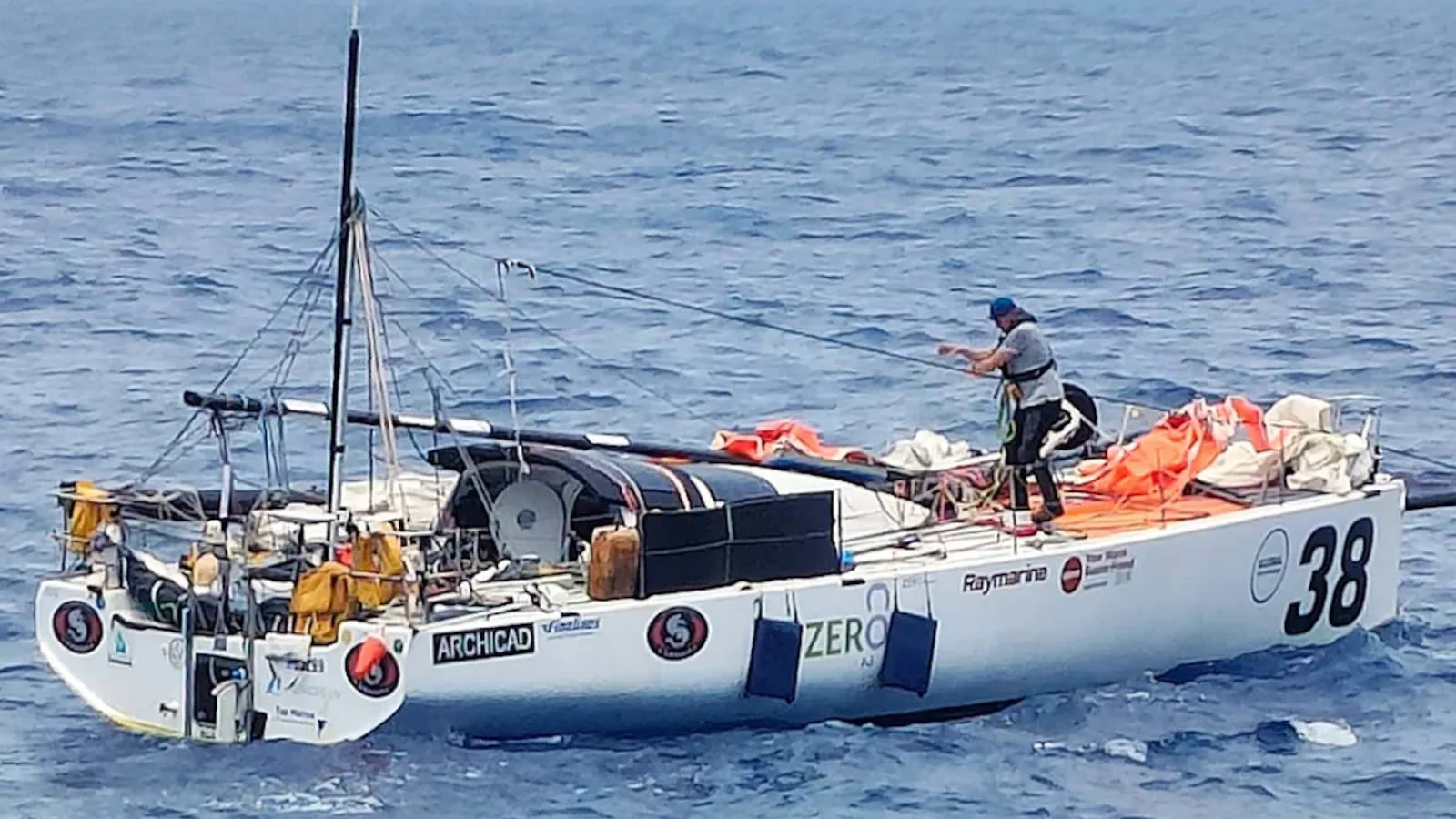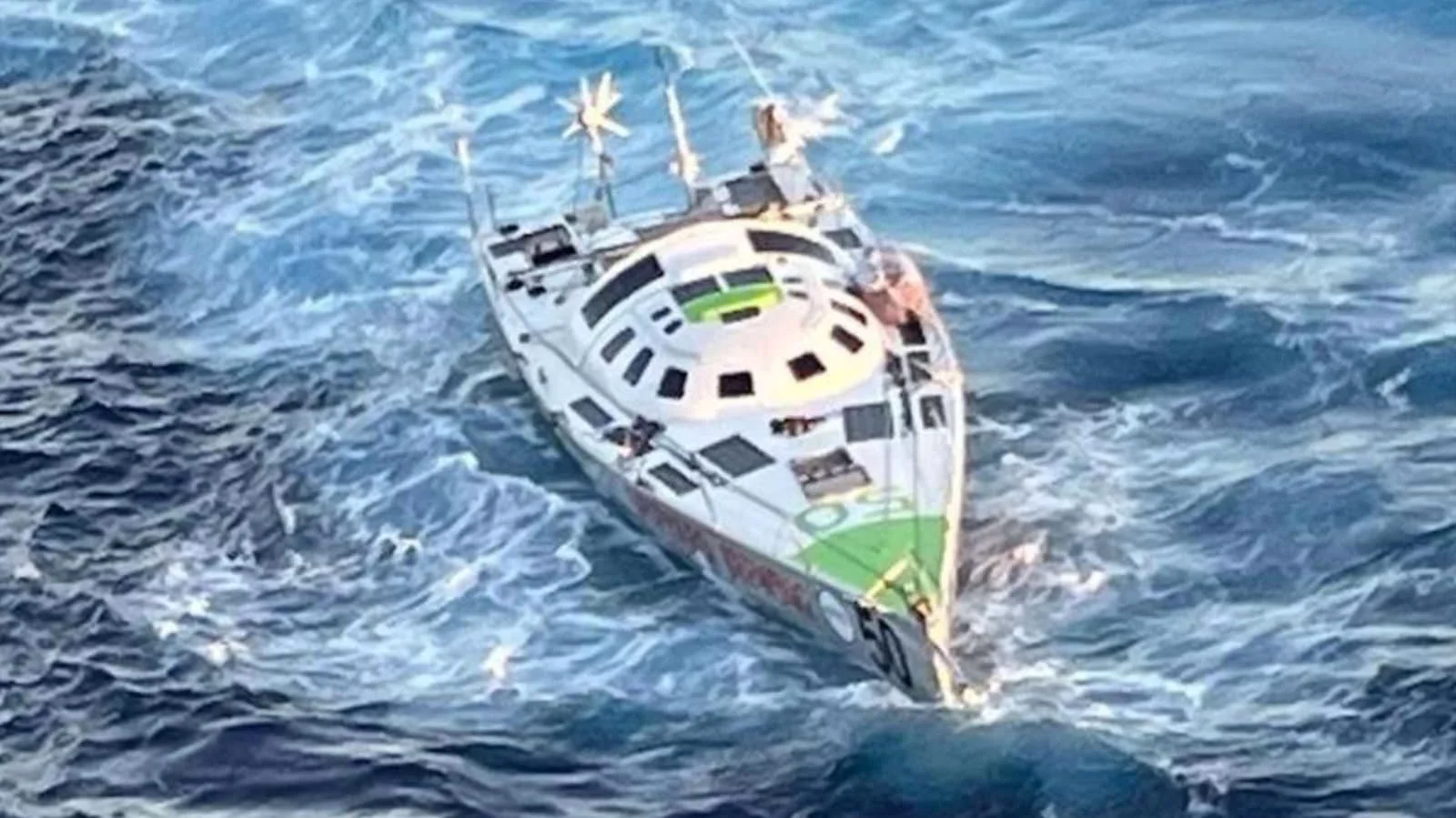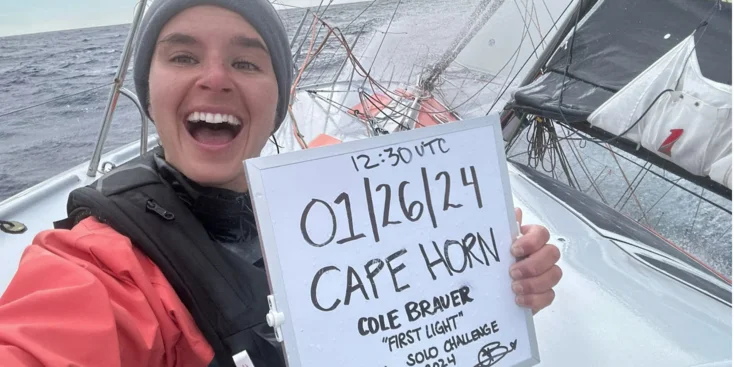
French yachtsman Philippe Delamare, 60, was first to finish the Global Solo Challenge in A Coruña
His yacht Mowgli (Actual 46) arrived at the finish line on 24 February after 147 days 1 hour 3 minutes 37 seconds at sea. He faced challenging conditions during the last 2000 miles of the race, battling with gale force winds, and the capital of Galicia welcomed the winner with an 8 metre wave.
In the second place with 2000 miles to finish line there is the only woman and the youngest competitor in the race, 30-year-old American Cole Brouer and her First Light (Class 40). Third is Italian Andrea Mura on Vento di Sardegna (Open 50). He has more than 3800 miles to go.
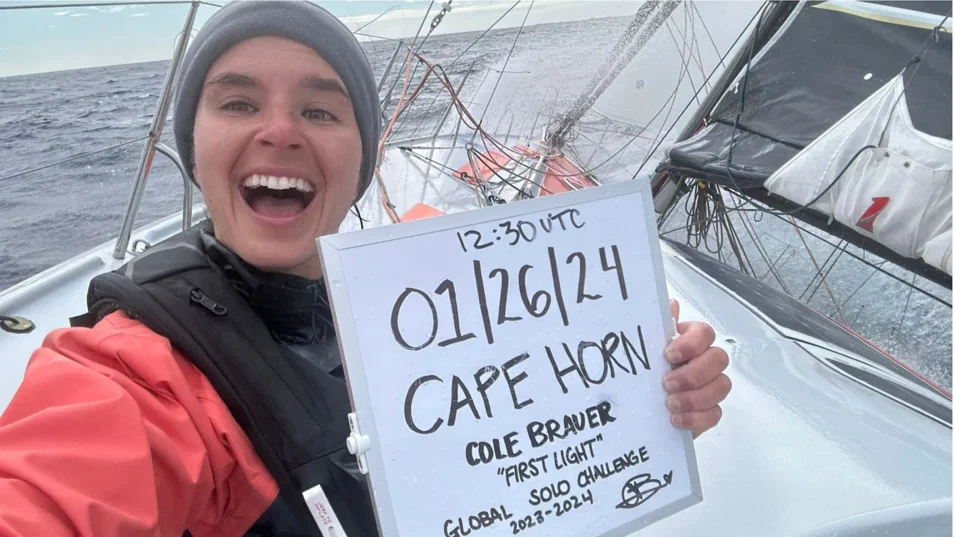
The Global Solo Challenge (GSC) is a unique race organized for the first time. Unlike classic offshore races where the fleet starts together and the winner is determined by corrected time based on handicap adjustment, the GSC follows a pursuit format.
Boats are divided into groups based on their racing characteristics and start separately with a time difference corresponding to their handicap. The first boat to finish is to be declared the absolute winner. This format is believed to be more interesting and easier to comprehend for a wide range of spectators. The GSC started with the first participants on 26 August 2023 and the last on 6 January 2024. The largest group, featuring Class40 and Open 40 yachts, started on 28 October 2023.
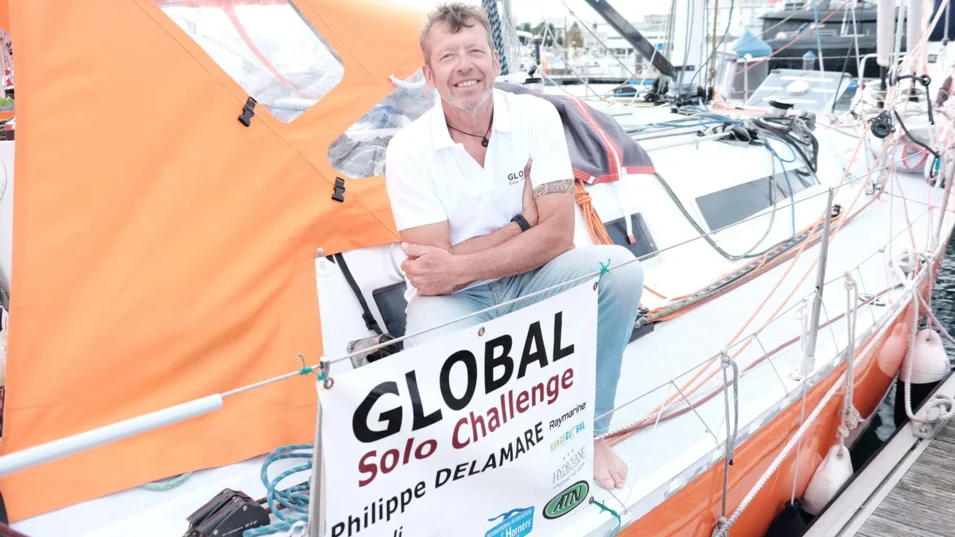
The race starts and finishes in A Coruña and passes through the three great capes of Good Hope, Horn and Leeuwin. Competitors come from Britain, Bulgaria, Belgium, France, Finland, the USA, Canada, Spain, Italy and Turkey.
Of the 20 boats that started, 7 remain on the course. More than half of the competitors retired from the race. Some competitors experienced truly dramatic moments.
Finnish sailor Ari Känsäkoski's boat ZEROchallenge (Class40) lost her mast on 22 December at the Roaring Forties.
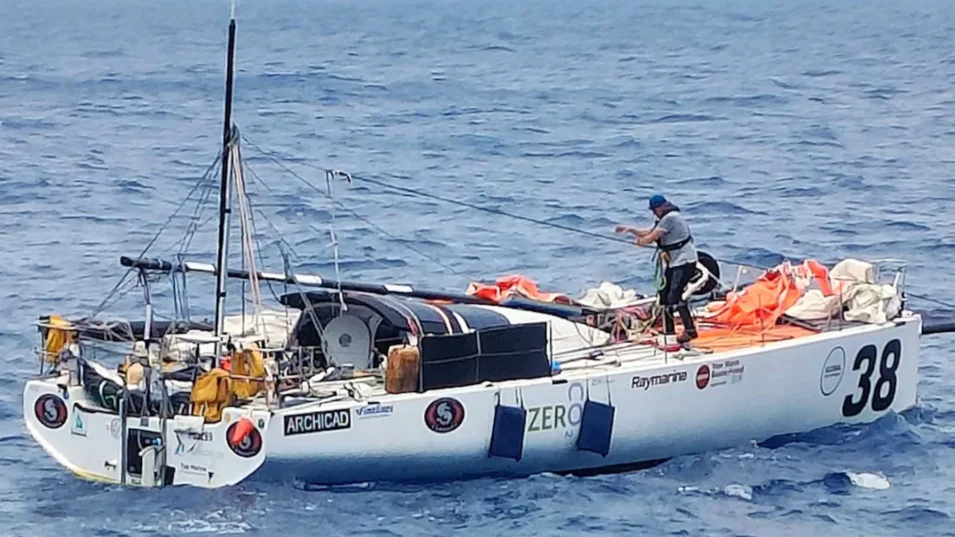
American Ronnie Simpson on his Shipyard Brewing had to abandon the race on 12 February when his yacht lost her mast 5,500 miles before the finish line. At the time he was third on the course.
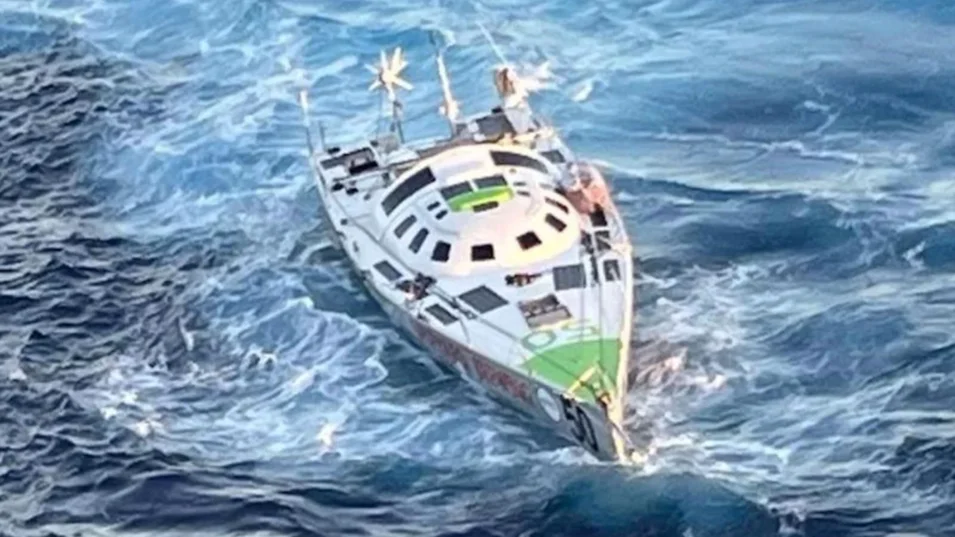
Canadian William MacBrien made a distress call on the night of 14 February, as his Phoenix (Class 40) began to take on water 1,300 miles west of Cape Horn. For the next 48 hours, MacBrien battled to save himself and his yacht. Fortunately, Watatsumi cargo ship happened to be only about 500 miles away and came to his rescue. The watertight bulkheads in the yacht's hull played a crucial role in MacBrien's survival. The bulkheads, which were required to allow the yacht to race, gave him the critical time he needed to save himself.
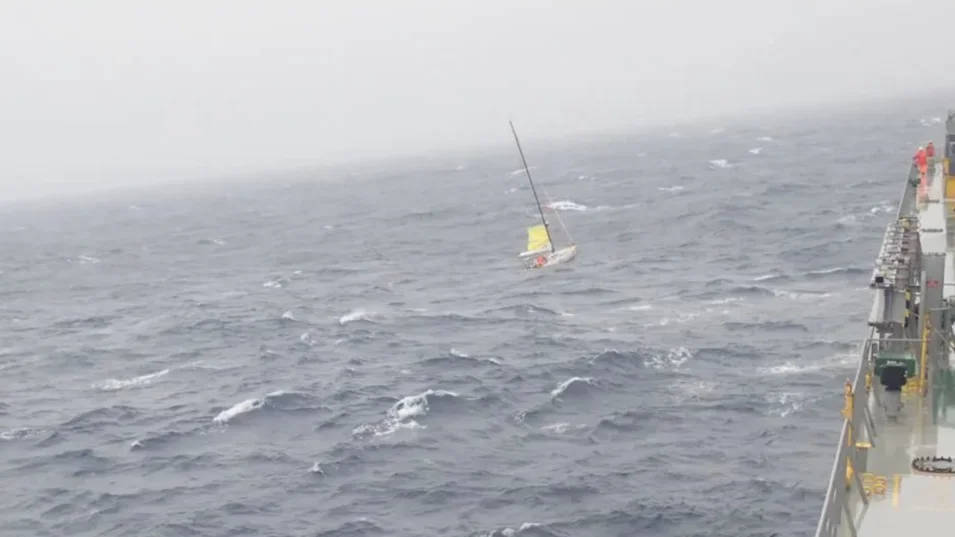
You have successfully subscribed to our newsletter
